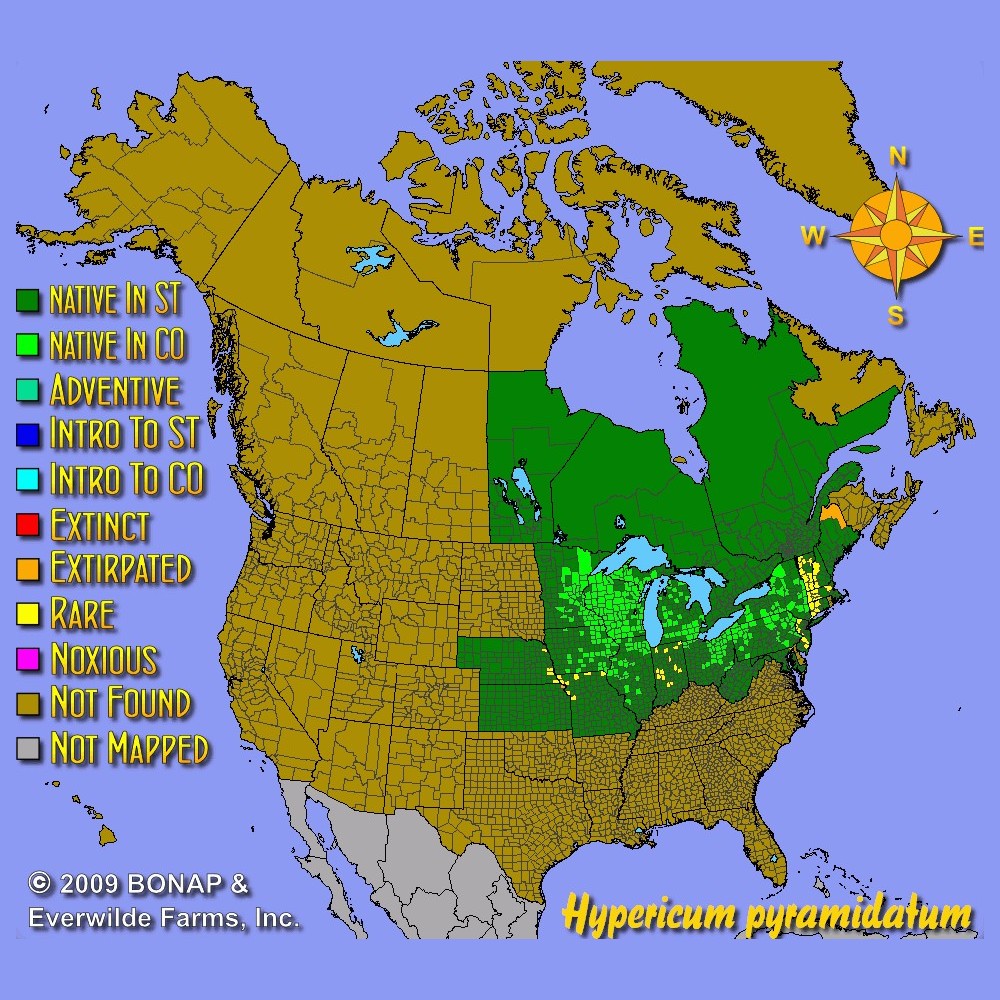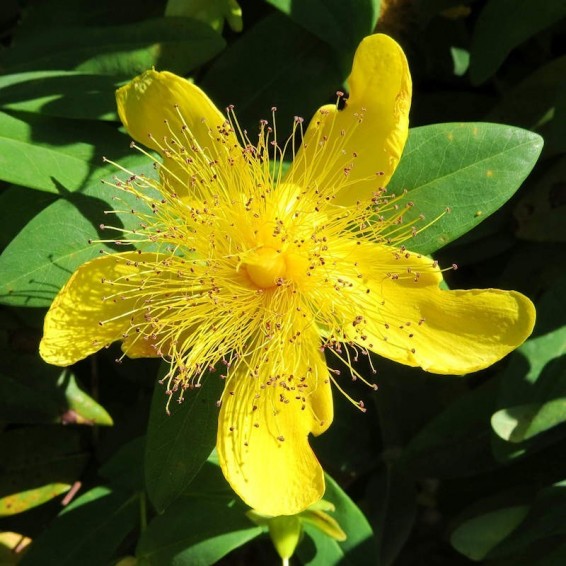Great St John's Wort Seeds
- HOW TO GROW
- FAST FACTS
- REVIEWS
HOW TO GROW
Sowing: Direct sow Great St John's Wort seeds in the fall, pressing the tiny seeds in the surface of rich soil and sprinkling a very thin layer of soil on top; this seed needs light to germinate. Mixing the seed with a small amount of sand may help in seed distribution. For spring planting, mix the seed with moist sand and store it in the refrigerator for 60 days before planting. To start indoors, sow Great St John's Wort seeds in a flat, keeping the soil lightly moist and at a temperature of 65-70 degrees F until germination. Transplant seedlings outdoors as soon as they can safely be handled.
Growing: Keep seedlings watered until they have become established. Mature plants also thrive with regular moisture and do well in well-drained, moist soil; they do not grow well in drought conditions. Eventually this plant may spread by rhizomes, though it does not become aggressive.
Harvesting: These blossoms do not perform well as cut flowers, and are best enjoyed in the garden.
Seed Saving: After the flowers fade, pointed seed pods will develop that mature from green to brown. When ripe, they will split open at the top to reveal the tiny brown seeds. Shake the open pods over a container to remove the seed. Store the cleaned Hypericum Pyramidatum seeds in a cool, dry place.
FAST FACTS
Latin Name: Hypericum pyramidatum
Species Origin: US Native Wildflower
Type: Native Wildflowers
Life Cycle: Perennial
USDA Zones: 3, 4, 5, 6
US Regions: Midwest, Northern, Northeast
Seeds per Ounce: 205,000
Stratification: Cold/Wet for 8 Weeks
Germination Ease: Stratify 8 Weeks
Sunlight: Full Sun, Part Sun
Height: 60 Inches
Color: Yellow
Bloom Season: Blooms Late Summer
Excited
Excited you have such hard to find seeds! Excited to see how they grow!
Excellent Quality
Top notch, superb quality seed company. The Bible verse on the package brought them to another level in my eyes - "servants of The All Mighty!" You've made a customer for life, at least on this side of the grave. Thank you, Everwilde!
DESCRIPTION

HOW TO GROW
Sowing: Direct sow Great St John's Wort seeds in the fall, pressing the tiny seeds in the surface of rich soil and sprinkling a very thin layer of soil on top; this seed needs light to germinate. Mixing the seed with a small amount of sand may help in seed distribution. For spring planting, mix the seed with moist sand and store it in the refrigerator for 60 days before planting. To start indoors, sow Great St John's Wort seeds in a flat, keeping the soil lightly moist and at a temperature of 65-70 degrees F until germination. Transplant seedlings outdoors as soon as they can safely be handled.
Growing: Keep seedlings watered until they have become established. Mature plants also thrive with regular moisture and do well in well-drained, moist soil; they do not grow well in drought conditions. Eventually this plant may spread by rhizomes, though it does not become aggressive.
Harvesting: These blossoms do not perform well as cut flowers, and are best enjoyed in the garden.
Seed Saving: After the flowers fade, pointed seed pods will develop that mature from green to brown. When ripe, they will split open at the top to reveal the tiny brown seeds. Shake the open pods over a container to remove the seed. Store the cleaned Hypericum Pyramidatum seeds in a cool, dry place.
FAST FACTS
Latin Name: Hypericum pyramidatum
Species Origin: US Native Wildflower
Type: Native Wildflowers
Life Cycle: Perennial
USDA Zones: 3, 4, 5, 6
US Regions: Midwest, Northern, Northeast
Seeds per Ounce: 205,000
Stratification: Cold/Wet for 8 Weeks
Germination Ease: Stratify 8 Weeks
Sunlight: Full Sun, Part Sun
Height: 60 Inches
Color: Yellow
Bloom Season: Blooms Late Summer
Reviews
Review
Excited
Excited you have such hard to find seeds! Excited to see how they grow!
Review
Excellent Quality
Top notch, superb quality seed company. The Bible verse on the package brought them to another level in my eyes - "servants of The All Mighty!" You've made a customer for life, at least on this side of the grave. Thank you, Everwilde!




